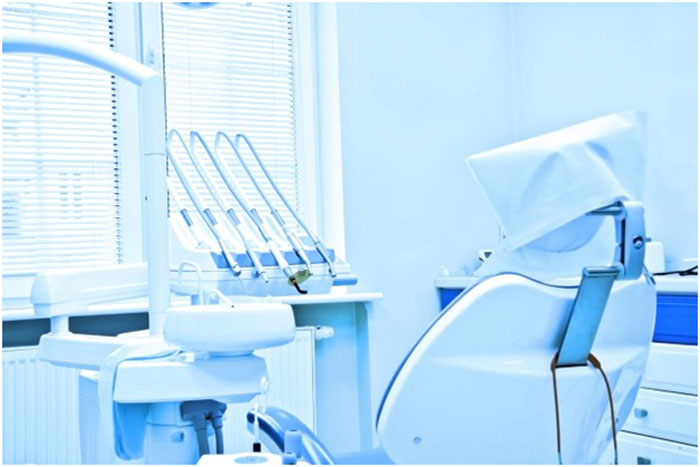
Nature of the Work
Dental laboratory technicians fill prescriptions from dentists for crowns, bridges, dentures, and other dental prosthetics.
Dentists send a specification of the item to be fabricated along with an impression (mold) of the patient's mouth or teeth to the technicians. Then dental laboratory technicians, also called dental technicians, create a model of the patient's mouth by pouring plaster into the impression and allowing it to set. They place the model on an apparatus which mimics the bite and movement of the patient's jaw. The model serves as the basis of the prosthetic device. Technicians examine the model, noting the size and shape of the adjacent teeth or gaps within the gum line. Based upon these observations and the dentist's specifications, technicians build and shape a wax tooth or teeth, using small hand instruments called wax spatulas and wax carvers. They use this wax model to cast the metal framework for the prosthetic device.
Once the wax tooth has been formed, dental technicians pour the cast and form the metal. Using small handheld tools, they prepare the surface of the metal to allow the metal and porcelain to bond. They apply porcelain in layers to arrive at the precise shape and color of a tooth. Technicians place the tooth in a porcelain furnace to bake the porcelain onto the metal framework, then adjust the shape and color with subsequent grinding and addition of porcelain to achieve a sealed finish. The final product is an exact replica of the lost tooth or teeth.
In some laboratories, technicians perform all stages of the work, while in others, each does only a few. Dental laboratory technicians also may specialize in one of five areas: Orthodontic appliances, crown and bridge, complete dentures, partial dentures, or ceramics. Job titles may reflect specialization in these areas.
Working Conditions
Dental laboratory technicians generally work in clean, well lighted, and well-ventilated areas. Technicians usually have their own workbenches, which may be equipped with Bunsen burners, grinding and polishing equipment, and hand instruments, such as wax spatulas and wax carvers.
The work is extremely delicate and quite time consuming. Salaried technicians usually work 40 hours/week, but self-employed technicians frequently work longer hours.
Employment
Dental laboratory technicians held about 35,630 jobs in 2017. A majority of jobs were held in the medical equipment and supplies manufacturing industry. However, the federal executive branch (OES designation) industry was the highest paid.
Training, Other Qualifications, and Advancement
Most dental laboratory technicians learn their craft on the job. They begin with simple tasks, such as pouring plaster into an impression, and progress to more complex procedures, such as making porcelain crowns and bridges. Becoming a fully trained technician requires an average of three to four years depending upon the individual's aptitude and ambition, but it may take a few more years to become an accomplished technician.
Training in dental laboratory technology is also available through community and junior colleges, vocational technical institutes, and the Armed Forces. Formal training programs vary greatly both in length and the level of skill they impart.
Accredited programs generally take two years to complete and lead to an associate degree. Graduates of two-year training programs need additional hands on experience to become fully qualified. Students who have taken enough courses to learn the basics of the craft generally are considered good candidates for training, regardless of whether they have completed the formal program.
Certification, which is voluntary, is offered by the National Board for Certification in five specialty areas: crown and bridge, ceramics, partial dentures, complete dentures, and orthodontic appliances.
In larger dental laboratories, technicians may become supervisors or managers. Experienced technicians may teach or take jobs with dental suppliers in such areas as product development, marketing, or sales. Still, for most technicians, opening one's own laboratory is the way toward advancement and higher earnings.
A high degree of manual dexterity, good vision, and the ability to recognize very fine color shadings and variations in shape are necessary. An aptitude for detailed and precise work also is important. Useful high school courses are art, metal and wood shop, drafting, and sciences. Courses in management and business may help those wishing to operate their own laboratories.
Job Outlook
Employment for dental laboratory technicians is projected to grow 13% from 2016 to 2026—which is faster than average.
However, the reduction of dental cavities and greater emphasis on preventive dental care since the early 1960s has improved the overall dental health of the population and as a result, people are keeping their teeth longer. Instead of full or partial dentures, most people will need a bridge or crown.
Earnings
The median annual wage for all workers in dental laboratories was $38,670 in 2017. Workers in dental laboratories average about $16.95/hour. However, earnings rise sharply with experience. In general, earnings of self employed technicians exceed those of salaried workers. Technicians in large laboratories tend to specialize in a few procedures, and therefore tend to be paid a lower wage than those employed in small laboratories who perform a variety of tasks.
Related Occupations
Arch support technicians, orthotics technicians (braces and surgical supports), prosthetics technicians (artificial limbs and appliances), opticians, and ophthalmic laboratory technicians.
Image Source: Freepik.com
